About Sarah
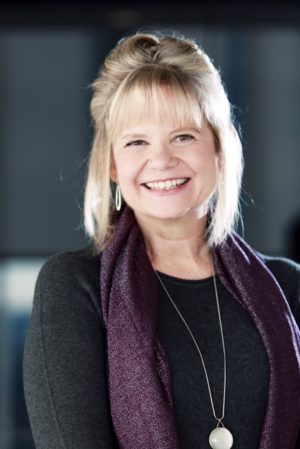
© Ev Sekkides
Sarah Morgan is a #1 Sunday Times and USA Today bestselling author of contemporary romance and women’s fiction. She has sold over 25 million copies of her books, and her trademark humour and warmth have gained her fans across the globe. Her books have been translated into 28 languages and have earned her starred reviews from Publishers Weekly, Booklist and Library Journal.
Sarah lives near London, and when she isn’t reading or writing she loves spending time outdoors, walking or riding her mountain bike. She frequently stops to take photographs, much to the annoyance of her family.
Facts About Sarah
- I knew I wanted to be a writer when I was eight years old.
- I love horses, mountains, movies, good food, books, music and anything that makes me laugh.
- I trained as a nurse and worked for a few years in the ER, an experience I’ve used in many of my books
- I fell in love with my husband at work because he was cool and calm in a crisis and my life is one big crisis.
- I completed my first full manuscript when I was at home with a new baby.
- I write on a laptop with the internet disconnected.
- I love to travel. In the UK my favourite places are the wild coastline of North Cornwall and the mountains of the Lake District. When I’m craving sunshine I love the Greek Islands.
- My favourite city is New York.
- I’m an extrovert and sitting in silence all day typing is torture for me. I’ve been known to talk to my laptop.
- When I’m not writing I love spending time with family and friends.
- I carry a notebook and pen everywhere. I’m always scribbling and sometimes I sneak a horse or two into my books.
Photos
Click to view larger versions
- Beautiful Corfu
- Wild Cornwall
- with Nora Roberts
- with Jill Shalvis
Questions and Answers
When did you start writing?
I scribbled stories as a child and carried on scribbling – different things, children’s books, thrillers, anything that came into my head and excited me enough to want to write it down. I trained as a nurse and it was only when I was at home with my first baby that I actually finished a book. Typing ‘the end’ on something felt like progress. I sent it to Harlequin and it was rejected, but the comments were positive so I tried again, and again. It never entered my head to give up. On the third attempt my first Medical Romance was accepted. That was an exciting day!
How do you come up with an idea for a book?
Ideas are everywhere! The skill is turning those ideas into a compelling story with strong conflict that keeps readers hooked. I read a lot. Books, newspapers and magazines; I talk to people – observe human behaviour and always I ask myself ‘what if’ – what if they’d made this decision instead of that one? Done this instead of that? It’s a fascinating exercise. We all make mistakes in life. We all face difficult decisions. I try and create that for my characters.
How do you get started on a new manuscript?
A story comes to me in different ways. Sometimes I will suddenly think of a line of dialogue, and that might be enough to tell me a great deal about a character and the way they are going to respond to situations. I might imagine a single scene and build the book from there. Once I have that first idea, I let the story flow. I play with the idea, make sure the conflict is strong, that the motivation is solid. Most of all I think about the characters – I work hard to make them real people, with flaws and qualities, doubts and fears, and most of all with a problem! If there’s no problem, there’s no story. I look for trouble.
Do you outline or free write?
I use both methods. I need to know my characters and the central conflict before I start. I usually have a few scenes in my head. I don’t need to know the detail at that stage. Ideas always come as I write. By the time I reach the end of my first draft I know the characters really well and that’s when the book really starts to take shape. I go back through, deepen the conflict, tighten the motivation, make the characters as ‘real’ as possible on the page.
How long does it take you to write a book?
It depends on the book. I have a schedule and deadlines but each book does vary and I make sure I allow time to get it right. Some books flow more easily than others and it’s important to build in time for revisions. I always want it to be the best it can be before it leaves me for the final time.
Do you suffer from writer’s block?
I can’t afford to suffer from writer’s block! I’ve learned with experience that if a story doesn’t seem to be flowing , then there’s a reason. Either the character isn’t right, the motivation isn’t right, or the conflict isn’t strong enough. If I’m struggling, then the first thing I do is read through what I’ve written and identify the point where it was going well. Then I try and work out why it doesn’t feel right. Sometimes I’ll call my editor and we’ll brainstorm some ideas, or I’ll call an author friend. It helps to have another perspective. Sometimes it’s good to have time away from the manuscript so I’ll give myself some distance – I’ll work on something else for a few days and then return to it. Occasionally I’ll jump forward in the book and write a scene I’m confident with, but generally I write in chronological order. And I try not to panic. I remind myself the writing is hard work. Like any job you have good days and bad days. Sometimes it flows, sometimes it doesn’t.
I love the O’Neil Brothers series. Is Snow Crystal a real place and are you planning on writing more books in this series?
A lot of readers ask me if Snow Crystal is a real place. Sadly, it’s not (or I’d be visiting too!). It was inspired by various places that I’ve visited over the years, together with a big dollop of imagination. At the moment I have no plans to write more stories in that series but you might be interested to know there is a visit back to Snow Crystal in Moonlight Over Manhattan, the final book in my New York series.
Describe your typical writing day.
I’ll concentrate on my current manuscript until lunchtime, when I check emails, read news headlines, return phone calls, put the laundry on (where does it all come from?!). Sometimes I go for a quick walk to clear my head. Once a week I meet friends for lunch – I try not to do it more often than that. The temptations are there in this job and you have to be disciplined. I work until my family arrive home. Sometimes I do more in the evening after they’re in bed. It depends on how the book is going and whether I feel I’ve done enough. There are always other things to fit in – research, revisions on another manuscript, proofs to check, promotion, emails. The job isn’t just about writing the book.
What do you love most about writing?
When an idea develops in my head and I can’t wait to write it. That’s exciting. I enjoy seeing the characters come to life on the page and hearing them speak. I love it when it all feels ‘real’.
I enjoy research – in trying to add authenticity to a story I’ve learned about everything from protecting the rainforest to archaeology.
I love when readers tell me one of my books has really helped them escape for a few hours. I love the friendship I have with other writers – they’re a great bunch of people and writing can be an isolated profession so it’s important to have a network of friends for mutual support. I appreciate the flexibility of the job. Working from home is a real advantage and I never forget I’m privileged to be a published writer.
What do you dislike about writing?
Not much. I do become frustrated when the book isn’t going the way I want it to, but I have a fantastic editor and good friends, which helps. The hardest thing for me is being alone for long stretches of time so I break up my writing day with social contact. I’m more creative that way!
What do you do when you’re not writing?
I love spending time with my family and friends. Writing is an indoor, solitary job so when I’m not writing I like to be outdoor and social! I love cooking, hiking, mountain biking, music, watching movies, reading, talking, laughing – lots of things!
What sort of books do you enjoy reading?
I read a variety of books – romance (obviously!), thrillers, autobiographies, particularly by explorers and climbers – (I’ve climbed Everest several times from the safety and comfort of my sofa). I like reading stories of triumph over hardship. As long as a book grips me, I’ll enjoy it.
If you had to give an unpublished writer one piece of advice, what would it be?
Write. How many times have you heard that? Probably as many times as I have heard people say they are going to write a book ‘one day’ or ‘when they find time’. Writers write. Not tomorrow, not next week – now, today. Write, and keep writing even when you receive a rejection. Also, it’s important to finish a book. It’s easy enough to start – not so easy to finish. It takes discipline to write and sustain a story through to the end and if you manage that, and enjoy the process, then you’re already on your way.
Do you ever read and comment on unpublished manuscripts for other people?
No. For legal reasons I cannot comment on other people’s manuscripts. The RWA offers support and advice for unpublished writers as does the Romantic Novelists’ Association in the UK, who run the New Writer’s scheme offering a critique for unpublished authors. Details are available online.
Can you recommend a book on writing craft?
Stephen King’s On Writing
Blake Snyder’s Save the Cat
DISCLOSURE – As an Amazon Associate I earn from qualifying purchases on this site.




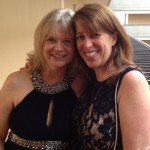
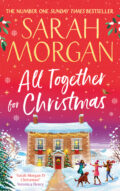
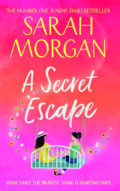

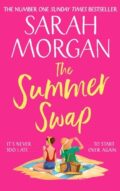
You must be logged in to post a comment.